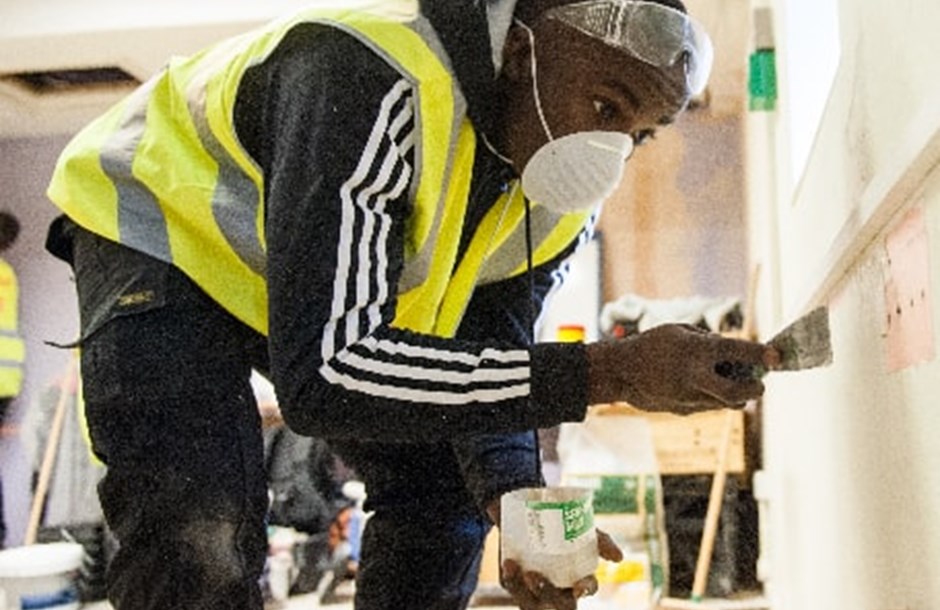Why become an apprentice?
We asked a couple of budding CAD Engineers why they became apprentices.
An apprenticeship is a paid job, offering training that lasts a minimum of 12 months and is for anyone aged 16 and over. During an apprenticeship, you’ll work with experienced staff and gain qualifications by doing practical and academic learning. Your employer will give you tasks to perform, and a training provider will equip you with the theoretical skills to perform those tasks.
As an apprentice, you’ll earn while you learn, so you can gain an industry-specific qualification without needing a student loan. You’ll be employed full-time (usually between 30-40 hours per week), which includes time spent with your training provider. On average you'll need to spend at least 6 hours a week doing off-the-job training. Apprentices receive a wage and, depending on individual circumstances, may be entitled to some benefits, too.
Construction apprenticeships are a highly valued entry route into the industry.
There are 100's of diverse, rewarding construction apprenticeships to choose from. You could be behind a drawing board, developing project management skills, training as a craftsperson and more.
Most people have heard of carpenters, bricklayers and architects, but there are also lots of apprenticeships for roles you might not have considered. Ever thought of becoming a steeplejack, a conservation expert, an archaeologist, or a tunnelling engineer? You can train for these roles and many more, as a construction apprentice.
An intermediate apprenticeship (level 2) usually takes two years to complete, but there are over 100 construction-related apprenticeships at four different qualification levels (2-7) lasting at least 12 months. The length of your course will depend on your existing experience, qualifications and the job role you choose.
The different levels of apprenticeships mean that you can enter at a level that’s right for you and progress in your career. The types of apprenticeship are:
Each apprenticeship will have different entry requirements and advertised vacancies will state what these are. Employers will also take into consideration previous work experience and your enthusiasm and talent for the role.
You may find that the occupation you'd like to pursue does not offer standard apprenticeship programmes, however some specialist trades have something called Specialist Applied-Skills Programmes, which are also known as 'Sector Apprenticeships'.
From September 2022 construction apprenticeships in Wales will be different.
Visit the Skills for Wales website for full details on the changes and how they can empower learners with more opportunities for the future.
You can also talk to your local college or training provider in Wales about them.
It's a good question! There are benefits to completing a degree or an apprenticeship. Employers hold both routes in high regard.
Construction-related university courses often focus on theoretical study, but many include practical experience in the form of a year in industry. If you complete a higher or degree level apprenticeship, your qualification will be equivalent to an undergraduate or masters degree, but you’ll have gained much more hands-on experience.
In order to become a construction apprentice, you’ll need to find an employer who can provide on-the-job training. This could be a small or large business, a local firm, a family member or a self-employed person.
If you haven’t got an employer yet, don’t worry. There are lots of ways to find someone who wants to hire you as an apprentice:
When speaking to employers, let them know that, depending on their circumstances, they could receive up to £14,000 in grants from the government or Construction Industry Training Board (CITB) for taking you on. This will help them to meet the costs of employing you.
Funding is also available via the Apprenticeship Levy or through certain government incentives. This will help them to meet the costs of employing you.
Once you’ve completed your construction apprenticeship, you’ll be awarded an industry-specific qualification.
Your employer may offer you a full-time job (on their wage structure) or you could discuss the possibility of progressing onto a higher level apprenticeship with them. Of course, you may choose to look elsewhere for work and gain experience with another employer.
If the company you completed your first apprenticeship with is unable to provide you with the correct work experience for a higher level qualification, you may need to look elsewhere to continue your training.
